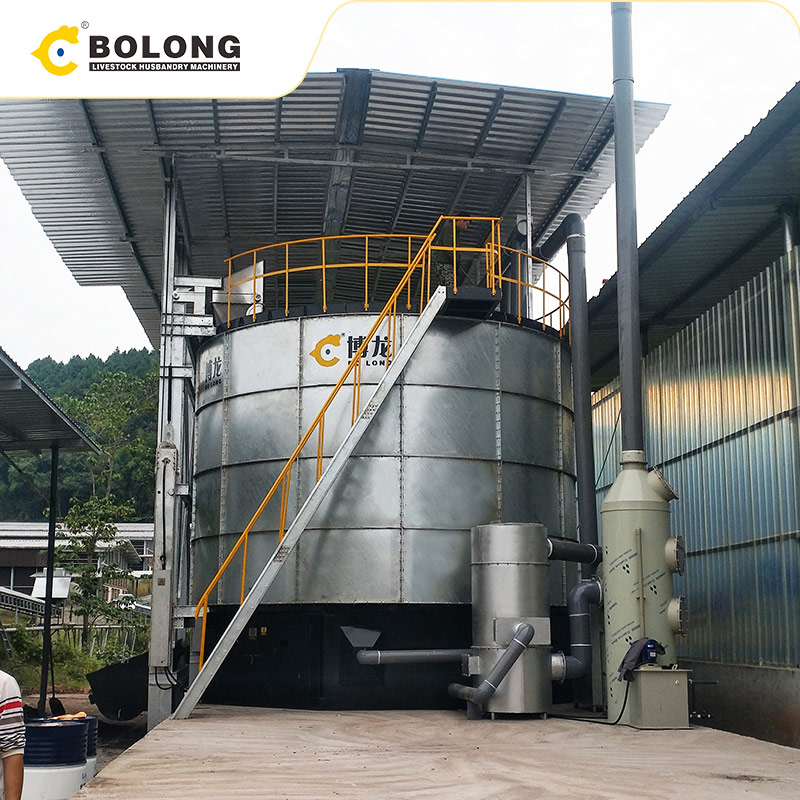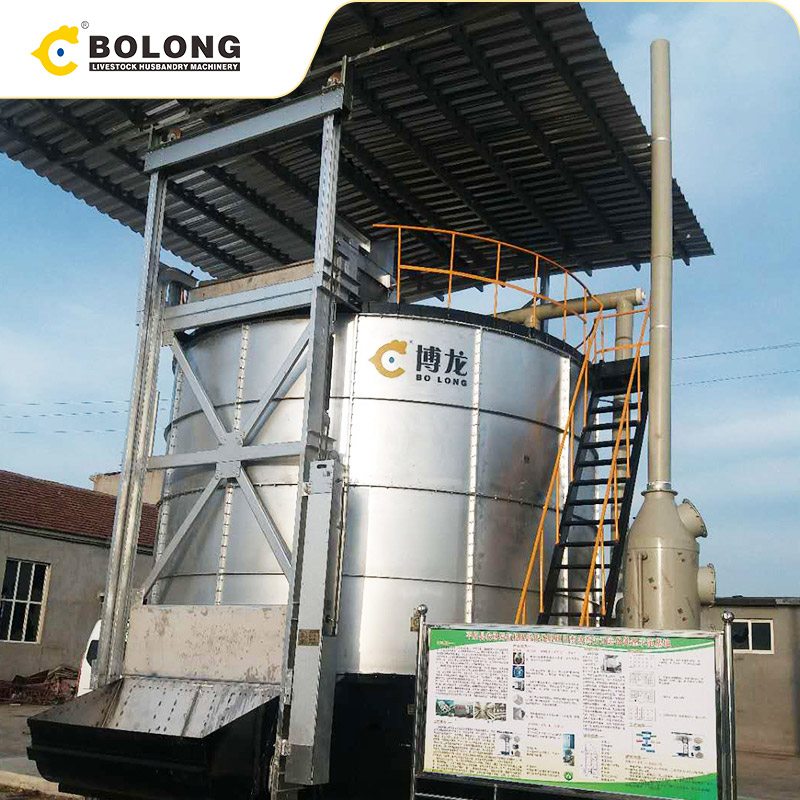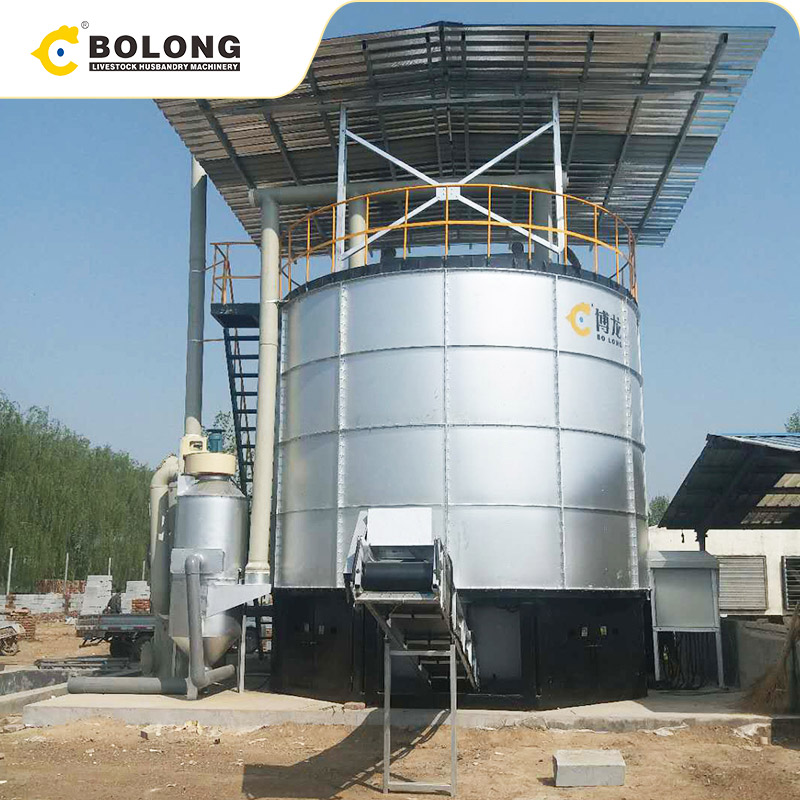In today’s environmentally – conscious era, proper organic waste disposal is crucial. Composting machines offer effective solutions across various waste – treatment scenarios.
1.1 Handling Crop Residues
Agriculture generates abundant crop residues like straw and corn stalks. Composting machines shred and mix these residues. By controlling temperature, humidity, and oxygen within the machine, decomposition speeds up. The shredded residues turn into nutrient – rich compost, improving soil structure and fertility. For example, in large – scale wheat – growing areas, farmers use composting machines to process wheat straw, reducing disposal burden and providing organic matter for soil.
1.2 Processing Livestock Manure
Livestock manure is a major part of agricultural waste. Composting machines are highly effective here. The high – temperature fermentation in the machine kills harmful pathogens and weed seeds in manure. As manure composts, it becomes a safe, nutrient – rich fertilizer. Well – functioning composting machines can handle large volumes from livestock farms. The resulting compost, rich in nitrogen, phosphorus, and potassium, promotes plant growth and cuts reliance on chemical fertilizers.
1.3 Treating Food Processing Waste from Farms
Fruit and vegetable trimmings from farm food processing can be processed by composting machines. These machines break down complex organic matter. Optimized conditions inside, like proper aeration and moisture control, help decomposition. The compost enriches orchard and vegetable – garden soil, boosting productivity.
2.1 Handling Fruit and Vegetable Peels
Fruit and vegetable peels, common kitchen waste, can be managed by composting machines. In urban communities, small – scale composting machines in households or community centers use microorganisms to decompose the peels. The efficient composting process turns peels into nutrient – rich soil amendments for urban gardening, such as in balcony or small – scale community gardens.
2.2 Dealing with Leftover Food
Leftover food, a significant part of kitchen waste, can be broken down by composting machines, reducing landfill waste. In commercial kitchens, medium – sized composting machines handle large amounts of leftover food, managing its high – moisture content well. The resulting compost is used in urban green spaces, contributing to a sustainable urban environment.
2.3 Processing Coffee Grounds
Coffee grounds, rich in nitrogen, can be processed by composting machines. These machines mix coffee grounds with other organic materials for balanced compost. In coffee – loving neighborhoods, community – based composting machines turn coffee grounds into compost for acid – loving plants like blueberries and azaleas in urban gardens.
3.1 Handling Grass Clippings from Parks
Municipal waste often includes grass clippings from parks. Composting machines convert these into compost. Large – scale composting facilities with advanced machines process significant amounts. The machines shred and mix grass clippings with other organic materials. The compost improves park soil, enhancing lawn and plant growth.
3.2 Processing Biodegradable Packaging Materials
Biodegradable packaging materials in municipal waste can be processed by composting machines. These machines break down biodegradable polymers. The carefully – controlled composting process ensures complete decomposition. The compost is used in urban landscaping, like along roadsides or in public flower beds.
3.3 Integrating into Municipal Waste Treatment Systems
Composting machines can be integrated into larger municipal waste treatment systems. These systems first separate organic from non – organic waste, then feed the organic part into composting machines. The large – scale machines handle high – volume waste. The compost is used for large – scale urban greening, such as creating new parks or restoring degraded landscapes.

In summary, composting machines have diverse applications in organic waste treatment. Whether it’s agricultural, kitchen, or municipal waste, these machines offer efficient, eco – friendly, and sustainable solutions. They reduce waste sent to landfills and incinerators, alleviating environmental pressure. They also transform waste into valuable resources like fertilizers for agriculture and soil amendments for urban greening. As technology advances, composting machines will be more efficient and user – friendly. It’s crucial for more communities, industries, and individuals to recognize their potential and use them in waste treatment strategies, moving towards a more sustainable future where organic waste is a resource.


